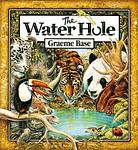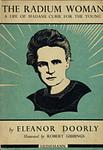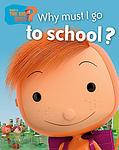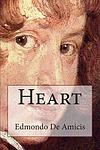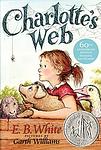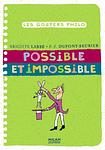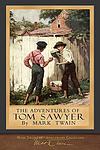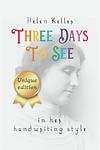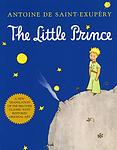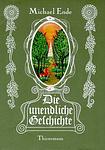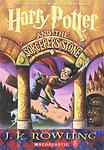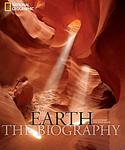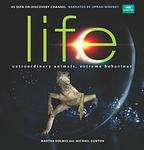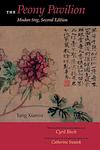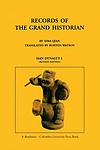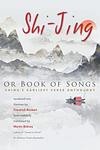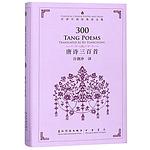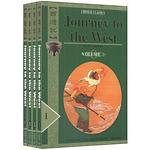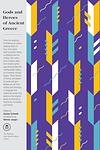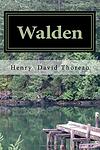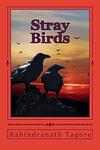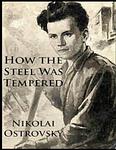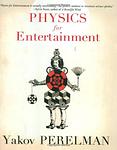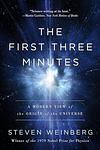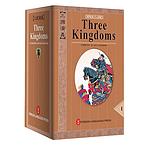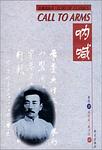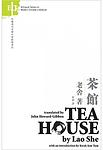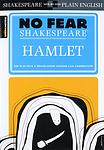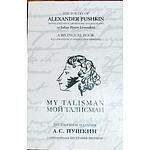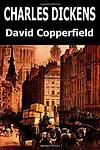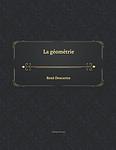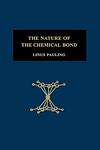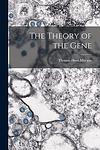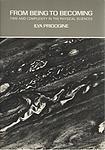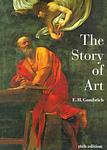Recommended Reading List for Students (China 2020)
This is one of the 305 lists we use to generate our main The Greatest Books list.
-
Household Tales by Brothers Grimm
"Household Tales" is a collection of German fairy tales that includes popular stories such as "Cinderella", "Little Red Riding Hood", "Hansel and Gretel", and "Snow White". These narratives, often featuring magical elements and moral lessons, have been influential in shaping Western popular culture. The tales range from the whimsical and humorous to the dark and cautionary, reflecting a wide array of human experiences and emotions.
The 316th Greatest Book of All Time -
Franz Series by Christine Nöstlinger
The "Franz Series" follows the adventures and everyday life of a young boy named Franz. Through a series of engaging and humorous stories, readers experience Franz's school days, family interactions, and evolving friendships. The series captures the essence of childhood, portraying Franz's challenges and triumphs in a relatable and endearing manner. Each book provides insights into Franz's thoughts and feelings, making it a delightful read for children navigating their own paths through early life experiences.
The 9099th Greatest Book of All Time -
The Water Hole by Graeme Base
"The Water Hole" is a children's picture book that combines counting with a journey through different global ecosystems, each centered around a diminishing water hole visited by various animals. As the water hole shrinks, readers are taken on a visual adventure through lush landscapes, from the African savanna to the Australian outback, exploring themes of nature, wildlife, and conservation. The book is richly illustrated, offering a detailed and engaging exploration of environmental issues and the interconnectedness of global habitats, while also providing a fun, educational experience through its counting element and hidden animal illustrations.
The 10091st Greatest Book of All Time -
The Radium Woman by Eleanor Doorly
"The Radium Woman" is a biographical account that explores the life and achievements of Marie Curie, a pioneering scientist known for her groundbreaking work on radioactivity. The book delves into Curie's relentless pursuit of knowledge, from her early struggles to gain education in a male-dominated field to her monumental discoveries of radium and polonium. It highlights her perseverance in the face of adversity, her Nobel Prize-winning achievements, and her lasting impact on science and medicine. The narrative not only celebrates her scientific accomplishments but also portrays her personal life, emphasizing her role as a mother, wife, and a woman of resilience.
The 8726th Greatest Book of All Time -
What's The Big Idea? by Oscar Brenifier
"What's The Big Idea?" is a philosophical book aimed at engaging children in deep and meaningful conversations about everyday concepts. Through a series of dialogues, the book explores various philosophical questions that encourage young readers to think critically about the world around them. Each topic is presented in a simple yet thought-provoking manner, making complex ideas accessible and intriguing to the young mind. The book serves as a tool to foster curiosity, dialogue, and reflection among children, helping them to develop a philosophical perspective on life from an early age.
The 10091st Greatest Book of All Time -
Pensa Hi by Brigitte Labbé
"Pensa Hi" is a philosophical exploration aimed at young readers, encouraging them to engage with complex ideas in an accessible way. The book presents a series of discussions on various philosophical topics, each designed to stimulate critical thinking and self-reflection. Through a combination of narrative and dialogue, the book introduces concepts such as ethics, existence, knowledge, and the nature of reality, inviting its readers to ponder deep questions about life, society, and the world around them. This approach not only educates but also inspires children to appreciate the value of philosophy in everyday life.
The 10126th Greatest Book of All Time -
Adventures Of Sanmao The Orphan by Zhang Leping
"Adventures of Sanmao the Orphan" follows the poignant and often heart-wrenching experiences of Sanmao, a young boy navigating life on the streets of Shanghai during the tumultuous times of the 1930s. With a distinctive three hairs on his head and a ragged outfit, Sanmao embodies resilience and ingenuity in the face of poverty, hunger, and societal indifference. Through a series of comic strips, the narrative poignantly illustrates the struggles and small joys of orphan life, offering a blend of humor, tragedy, and a critique of social issues, reflecting the harsh realities faced by the underprivileged in pre-revolutionary China.
The 8726th Greatest Book of All Time -
Heart by Edmondo de Amicis
"Heart" is a classic coming-of-age novel presented in the form of a diary of a young boy named Enrico. The story, set in 19th-century Italy, captures the daily life, thoughts, and feelings of Enrico as he navigates his school year. Through his entries, readers experience his interactions with classmates, teachers, and family, learning valuable lessons about friendship, patriotism, and human kindness. The book not only explores the personal growth of a young boy but also reflects the societal values and educational philosophies of the time, making it both a personal and cultural narrative.
The 8726th Greatest Book of All Time -
Charlotte's Web by E. B. White
A young girl named Fern saves a runt piglet from being slaughtered and names him Wilbur. When Wilbur grows too large, he is sent to live in her uncle's barn, where he befriends a clever spider named Charlotte. When Wilbur's life is in danger again, Charlotte weaves messages into her web to convince the farmer that Wilbur is too special to kill. The book explores themes of friendship, sacrifice, and the cycle of life.
The 99th Greatest Book of All Time -
Totto Chan, The Little Girl At The Window by Tetsuko Kuroyanagi
The book is a charming autobiographical memoir of a young girl's experiences at an unconventional school in Tokyo during World War II. The narrative focuses on the unique educational approach of the school's headmaster, who values freedom, creativity, and individuality in the educational process. Through a series of heartwarming episodes, the book illustrates how the school becomes a delightful haven for the girl, fostering her curiosity and love of learning amidst the backdrop of a society facing the challenges of war. The story is a testament to the impact of progressive education on young minds.
The 9192nd Greatest Book of All Time -
A Short History Of Nearly Everything by Bill Bryson
This book is a comprehensive exploration of scientific knowledge, covering a wide range of topics from the Big Bang to the rise of civilization. The author aims to understand how we got from nothing at all to where we are now, exploring subjects such as geology, chemistry, paleontology, astronomy, and particle physics. The book also delves into the lives of the scientists behind the discoveries, making the complex concepts accessible to the average reader.
The 4064th Greatest Book of All Time -
The Chemical History Of A Candle by Michael Faraday
"The Chemical History of a Candle" is a collection of six lectures that explore the scientific principles behind the seemingly simple burning of a candle. Delivered by a renowned scientist, the lectures delve into the composition and dynamics of a candle flame, discussing the physical and chemical processes involved, such as combustion, convection, and capillary action. The book illuminates how these fundamental principles relate to broader scientific concepts, making it an insightful exploration into how everyday phenomena can reveal complex scientific truths.
The 5947th Greatest Book of All Time -
Father And Son by E. O. Plauen
"Father and Son" is a heartwarming collection of comic strips that depict the everyday adventures and humorous misadventures of a single father and his young son. Through simple yet expressive line drawings, the book captures the essence of their loving relationship, highlighting the joys, challenges, and tender moments shared between parent and child. The minimalistic style and absence of dialogue emphasize the universal language of love and the playful, sometimes mischievous, dynamics that define family life.
The 8726th Greatest Book of All Time -
Quotations from Chairman Mao by Mao
This book is a collection of speeches and writings by the former leader of the People's Republic of China. It covers a wide range of topics including communism, revolution, class struggle, and the correct handling of contradictions among the people. The book was published with the intention of promoting the leader's ideology and was widely distributed during the Cultural Revolution. It was considered an essential guide to life and politics in China during this period.
The 856th Greatest Book of All Time -
What About: Philosophy by Anne-Sophie Chilard
"What About" is a thought-provoking exploration of the complexities of human relationships and the quest for personal identity. The narrative delves into the life of a protagonist who grapples with the expectations of society and the intricacies of her desires and responsibilities. Through a series of reflective encounters and experiences, the book examines themes of love, freedom, and the often painful journey towards self-discovery. The author uses a poignant and introspective tone to invite readers to question their own life choices and the various "what abouts" that define their personal journeys.
The 10722nd Greatest Book of All Time -
Les Goûters Philo by Brigitte Labbé
"Les Goûters Philo" is a series of philosophical books aimed at young readers, designed to introduce them to complex philosophical concepts in an accessible and engaging manner. Each book tackles a specific theme or question, encouraging children to ponder and discuss big ideas such as justice, freedom, or happiness. The series uses clear, straightforward language and illustrative examples, making it an excellent resource for initiating thoughtful discussions and fostering critical thinking skills in young minds.
The 9822nd Greatest Book of All Time -
Tales Of Hulan River by Xiao Hong
"Tales of Hulan River" paints a vivid portrait of life in a small northeastern town in China during the early 20th century. Through a series of interconnected stories and character sketches, the narrative captures the struggles, injustices, and everyday events of the townspeople living near the Hulan River. The book poignantly explores themes of poverty, gender inequality, and social change, providing a sensitive and realistic depiction of rural Chinese society and the impact of modernization on traditional lifestyles. The author's personal experiences and observations lend authenticity and depth to the portrayal of a community caught between the past and the emerging new world.
The 8726th Greatest Book of All Time -
Memories Of Peking by Lin Hai-yin
"Memories of Peking" is a poignant memoir that captures the essence of childhood in 1920s Beijing through the eyes of a young girl. The narrative weaves together a tapestry of family life, traditional customs, and the everyday struggles and joys experienced within the hutongs, or narrow lanes, of the city. Through vivid anecdotes and emotional depth, the book offers a nostalgic look at a bygone era, highlighting the innocence of youth amidst the socio-political changes of the time. The author's lyrical prose and rich descriptions bring to life the cultural landscape of early 20th-century China, making it a touching and evocative read.
The 8726th Greatest Book of All Time -
Fairy Tales and Stories by Hans Christian Andersen
This collection of stories offers a mix of enchanting fairy tales and narratives, many of which have become universally recognized classics. The stories range from tales of whimsical creatures and magical realms to poignant narratives that explore themes of love, sacrifice, and the human condition. Some tales are light-hearted and humorous, while others are profound and thought-provoking, demonstrating the breadth and depth of the author's storytelling abilities.
The 212th Greatest Book of All Time -
The Adventures of Tom Sawyer by Mark Twain
The book chronicles the mischievous adventures of a young boy living on the Mississippi River in the mid-19th century. The protagonist, a clever and imaginative boy, often finds himself in trouble for his pranks and daydreams. His escapades range from his romance with a young girl, his search for buried treasure, his attendance at his own funeral, and his witnessing of a murder. The narrative captures the essence of childhood and the societal rules of the time.
The 229th Greatest Book of All Time -
Three Days To See by Helen Keller
The essay "Three Days to See" reflects on what the author would choose to experience if granted the ability to see for just three days. The author, who is blind and deaf, contemplates the value and beauty of sight, expressing a profound appreciation for the visual world. The narrative emphasizes the importance of not taking one's senses for granted and encourages readers to cherish and make the most of every moment. Through a detailed itinerary for the three days, the author highlights the everyday wonders often overlooked by those who can see, advocating for a deeper appreciation of the simple joys and beauty surrounding us.
The 8726th Greatest Book of All Time -
The Little Prince by Antoine de Saint-Exupéry
A young prince from a tiny asteroid embarks on a journey across the universe, visiting various planets and meeting their strange inhabitants. Along the way, he learns about the follies and absurdities of the adult world, the nature of friendship, and the importance of retaining a childlike wonder and curiosity. His journey eventually leads him to Earth, where he befriends a fox and learns about love and loss before finally returning to his asteroid.
The 62nd Greatest Book of All Time -
The Neverending Story by Michael Ende
"The Neverending Story" is a captivating fantasy novel that follows the adventures of a young boy named Bastian. When he stumbles upon a mysterious book, he becomes engrossed in the magical world of Fantastica, where he must embark on a perilous quest to save the realm from destruction. As Bastian's imagination intertwines with reality, he discovers the power of storytelling and the importance of believing in oneself. This enchanting tale explores themes of courage, friendship, and the boundless nature of imagination.
The 995th Greatest Book of All Time -
Harry Potter And The Philosopher's Stone by J. K Rowling
The story follows a young boy, Harry Potter, who learns on his 11th birthday that he is the orphaned son of two powerful wizards and possesses unique magical powers of his own. He is summoned from his life as an unwanted child to become a student at Hogwarts, an English boarding school for wizards. There, he meets several friends who become his closest allies and help him discover the truth about his parents' mysterious deaths, the dark wizard who wants to kill him, and the magical stone that holds immense power.
The 134th Greatest Book of All Time -
Silent Spring by Rachel Carson
This influential environmental science book presents a detailed and passionate argument against the overuse of pesticides in the mid-20th century. The author meticulously describes the harmful effects of these chemicals on the environment, particularly on birds, hence the metaphor of a 'silent spring' without bird song. The book played a significant role in advancing the global environmental movement and led to a nationwide ban on DDT and other pesticides in the United States.
The 61st Greatest Book of All Time -
Storia Del Dove by Tommaso Maccacaro, Claudio M. Tartari
"Storia Del Dove" explores the concept of 'place' through a multidisciplinary lens, examining its significance in various contexts including geography, philosophy, and sociology. The book delves into how our understanding and perception of place shape human experience, culture, and social dynamics. It discusses the evolution of places over time, their impact on identity and community, and the implications of globalization on local and global identities. Through a blend of theoretical analysis and practical examples, the authors provide a comprehensive overview of the complexities surrounding the places we inhabit and their profound influence on our lives.
The 10620th Greatest Book of All Time -
Earth by Iain Stewart, John Lynch
This book provides a comprehensive exploration of the Earth's extraordinary history and the complex processes that have shaped it over billions of years. Through vivid descriptions and insights from scientific discoveries, the text delves into the dynamics of the planet's geology and climate, examining how these factors have influenced the evolution of life and continue to affect our present environment. The narrative also highlights the interconnectivity of Earth's ecosystems and the impact of human activity on its ongoing geological and biological transformations.
The 10409th Greatest Book of All Time -
Oceans by Paul Rose, Anne Laking
"Oceans" is an enlightening exploration of the vast and mysterious marine environments that cover most of our planet. Drawing on the latest scientific research, the book delves into the unique ecosystems found beneath the waves, from the sunlit surface waters to the deepest, darkest ocean trenches. It highlights the incredible diversity of marine life, the complex oceanic processes that regulate Earth's climate, and the pressing environmental challenges such as pollution and overfishing that threaten the health of our oceans. The book also discusses the ongoing efforts in ocean conservation and the new technologies enabling groundbreaking underwater exploration, providing a comprehensive overview of Earth's aquatic landscapes.
The 10409th Greatest Book of All Time -
Life by Martha Holmes, Michael Gunton
"Life" is a captivating exploration of the adaptability and diversity of life on Earth, detailing the extraordinary tactics organisms employ to survive and thrive. The book, accompanying a major documentary series, delves into the lives of various plants and animals, showcasing their complex behaviors and the remarkable strategies they use to overcome environmental challenges. From the depths of the ocean to the canopies of rainforests, the narrative is richly illustrated and brings to light the interconnectedness of Earth's ecosystems and the ingenuity of its inhabitants, emphasizing the resilience and beauty of the natural world.
The 10431st Greatest Book of All Time -
Fabre's Book Of Insects by Jean Henri Fabre
"Fabre's Book of Insects" retells the observations and reflections of a renowned entomologist, vividly describing the intriguing behaviors and unique lifestyles of various insects. Through a series of beautifully crafted essays, the book delves into the intricate world of creatures such as beetles, cicadas, and butterflies, among others. The author's meticulous research and passionate narrative style bring the tiny inhabitants of the insect world to life, revealing their complexities and the marvels of nature often overlooked in everyday life. This work not only serves as an educational resource but also as a tribute to the wonders of the natural world, encouraging a deeper appreciation and understanding of its smallest creatures.
The 8726th Greatest Book of All Time -
The Peony Pavilion by Tang Xianzu
"The Peony Pavilion" is a romantic tragicomedy play set during the Ming Dynasty, revolving around the love story between Du Liniang and Liu Mengmei. After falling in love with Liu in a dream, Du Liniang, the daughter of a high official, pines for him so deeply that she becomes ill and dies. Her spirit roams, seeking to be reunited with her lover. Liu, a young scholar, later discovers her portrait and falls in love with the image, leading to a series of supernatural events that eventually culminate in Du Liniang’s resurrection and the lovers' marriage. The play explores themes of love, destiny, and the metaphysical, challenging the social norms of the time.
The 6602nd Greatest Book of All Time -
Red Star Over China by Edgar Snow
"Red Star Over China" is a seminal work of journalism that provides a detailed account of the Chinese Communist Party (CCP) and the rise of Mao Zedong during the 1930s. Based on the author's extensive interviews with Mao and other Communist leaders while living with them at their revolutionary base in Yan'an, the book offers a firsthand glimpse into the personalities, events, and circumstances that shaped the early Communist movement in China. The narrative not only demystifies Mao and his ideological and military strategies but also provides insights into the hardships faced by the Red Army and their resilience in the struggle against both the Nationalist forces and Japanese invaders. This work played a crucial role in shaping Western perceptions of Mao and the Chinese Communist revolution.
The 8726th Greatest Book of All Time -
Records of the Grand Historian by Sima Qian
"Records of the Grand Historian" is an ancient Chinese text that provides a comprehensive history of China, from the earliest times up to the author's own period. The book is divided into five parts: the Basic Annals, the Chronological Tables, the Treatises, the Hereditary Houses, and the Biographies. It covers the lives of significant figures, political events, cultural developments, and much more. The author's objective and critical approach to history has had a profound influence on Chinese historiography and continues to be a valuable resource for understanding ancient Chinese history and culture.
The 2898th Greatest Book of All Time -
The Book of Songs by China
"The Book of Songs" is a collection of ancient Chinese poetry, providing a rich cultural and historical insight into early Chinese society. The anthology includes various types of poems, such as folk songs, hymns, and courtly songs, reflecting the life, customs, and beliefs of different social classes. It serves as a significant literary work and historical document, revealing the evolution of the Chinese language, thoughts, and values over centuries.
The 2018th Greatest Book of All Time -
The Three Hundred Tang Poems by China
This anthology is a comprehensive collection of 300 poems from the Tang Dynasty, one of the golden ages of Chinese literature. The poems are rich in imagery and emotion, reflecting the diverse experiences of life during that period, including love, nature, war, and the human condition. The collection is renowned for its representation of the poetic forms and styles of the Tang Dynasty, making it an essential read for those interested in classical Chinese literature.
The 4151st Greatest Book of All Time -
The Water Margin: Outlaws of the Marsh by Shi Naian
"The Water Margin: Outlaws of the Marsh" is a classic Chinese novel set during the Song dynasty, revolving around 108 outlaws who gather at Mount Liang to form a sizable army. The narrative explores themes of rebellion, loyalty, and justice, as these bandits challenge the corrupt and oppressive government. Despite their status as outlaws, they follow a strict code of honor and righteousness, often assisting the poor and the weak. The book is a blend of history, folklore, and mythology, offering a vivid portrayal of the political and social dynamics of the era.
The 1156th Greatest Book of All Time -
Journey to the West by Wu Cheng'en
"Journey to the West" is a classic Chinese novel that follows the adventures of a Buddhist monk and his three disciples, a monkey, a pig, and a river monster, as they travel from China to India in search of sacred Buddhist scriptures. Along the way, they face a series of challenges and obstacles, including battling demons and overcoming their own personal weaknesses. This epic tale is a blend of mythology, folklore, and fantasy, and is also a commentary on the practice and principles of Buddhism.
The 490th Greatest Book of All Time -
The Scholars by Wu Ching-tzu
The book is a satirical novel that offers a critical examination of the Chinese scholarly class and the civil service examination system of Imperial China. Through a series of interlinked stories, it follows the lives, careers, and misadventures of a diverse group of scholars, exposing the corruption, pettiness, and hypocrisy that pervade the academic and bureaucratic worlds. The narrative delves into the scholars' pursuit of literary glory and official rank, often at the expense of genuine morality and wisdom, providing a humorous yet poignant commentary on the social and educational values of the time.
The 3037th Greatest Book of All Time -
Dawn Blossoms Plucked At Dusk by Xun Lu
"Dawn Blossoms Plucked at Dusk" is a reflective collection of essays that delve into the author's nostalgic reminiscences of his youth and philosophical musings on life, literature, and human nature. Written in a lyrical and introspective style, the work explores themes of change, the passage of time, and the bittersweet nature of memory. Through personal anecdotes and thoughtful reflections, the author examines the complexities of growing up and the inevitable loss of innocence, offering insights into the universal human experience and the poignant beauty found in fleeting moments.
The 8726th Greatest Book of All Time -
Rickshaw Boy by Lao She
"Rickshaw Boy" is a novel about a young man living in Beijing in the 1920s who struggles to escape poverty and achieve personal independence. Despite his hard work and determination, he is continuously set back by societal and personal misfortunes, including failed business ventures, a disastrous marriage, and the loss of his rickshaw. The book serves as a critique of traditional Chinese society, illustrating the harsh realities of life for the working class during this time period.
The 1389th Greatest Book of All Time -
Youth Forever by Wang Meng
"Youth Forever" is a novel that explores the complexities of aging and the eternal desire to remain youthful. The narrative delves into the lives of elderly protagonists who, despite their advanced age, strive to pursue their passions, maintain their dignity, and seek new meanings in life. Through a blend of humor and poignancy, the story reflects on the universal themes of love, friendship, and the relentless passage of time, challenging the conventional perceptions of old age and highlighting the undying spirit that persists regardless of age.
The 9099th Greatest Book of All Time -
Aesop's Fables by Aesop
This book is a collection of short tales, often featuring animals as characters, which convey moral lessons. The fables, attributed to a storyteller from ancient Greece, are known for their brevity and poignant messages. The stories cover a wide range of themes such as honesty, wisdom, greed, vanity, and humility, and are often concluded with a simple, yet profound, moral lesson. The narratives have been passed down through generations and continue to be relevant in modern times.
The 908th Greatest Book of All Time -
Gods And Heroes by Gustav Schwab
"Gods and Heroes" is a comprehensive collection of captivating stories from Greek mythology, retelling the tales of gods, goddesses, heroes, and monsters that have been passed down through generations. The book delves into the dramatic and often tragic lives of famous mythological figures such as Zeus, Hercules, and Achilles, exploring their adventures, battles, and romances. Through these stories, the book not only entertains but also provides insights into the beliefs and values of ancient Greek culture, highlighting themes of power, fate, and heroism.
The 8726th Greatest Book of All Time -
Gulliver's Travels by Jonathan Swift
This classic satire follows the travels of a surgeon and sea captain who embarks on a series of extraordinary voyages. The protagonist first finds himself shipwrecked on an island inhabited by tiny people, later discovers a land of giants, then encounters a society of intelligent horses, and finally lands on a floating island of scientists. Through these bizarre adventures, the novel explores themes of human nature, morality, and society, offering a scathing critique of European culture and the human condition.
The 44th Greatest Book of All Time -
Jane Eyre by Charlotte Brontë
The novel follows the life of Jane Eyre, an orphan who is mistreated by her relatives and sent to a charity school. As she grows up, Jane becomes a governess at Thornfield Hall, where she falls in love with the brooding and mysterious Mr. Rochester. However, she soon learns of a dark secret in his past that threatens their future together. The story is a profound exploration of a woman's self-discovery and her struggle for independence and love in a rigid Victorian society.
The 20th Greatest Book of All Time -
Walden by Henry David Thoreau
This work is a reflection upon simple living in natural surroundings, inspired by the author's two-year experience of living in a cabin near a woodland pond. Filled with philosophical insights, observations on nature, and declarations of independence from societal expectations, the book is a critique of the complexities of modern civilization and a call to appreciate the beauty and simplicity of the natural world. It explores themes such as self-reliance, solitude, and the individual's relationship with nature.
The 71st Greatest Book of All Time -
Twenty Thousand Leagues Under the Sea by Jules Verne
This classic science fiction novel follows the adventures of Professor Aronnax, his servant Conseil, and harpooner Ned Land as they are captured by the enigmatic Captain Nemo aboard the Nautilus, a technologically advanced submarine. As they journey 20,000 leagues under the sea, they encounter a variety of sea creatures and underwater phenomena. The narrative explores themes of exploration, scientific discovery, and man's relationship with nature.
The 274th Greatest Book of All Time -
The Crescent Moon by Rabindranath Tagore
"The Crescent Moon" is a collection of poems and songs that delve into the innocence and wonder of childhood through the eyes of a child. The work beautifully captures the simple joys, sorrows, and profound insights experienced during the early years of life, reflecting on themes of nature, motherhood, play, and spirituality. The poet uses vivid imagery and emotive language to evoke the purity and freshness of a child's perspective, creating a tender and nostalgic exploration of youth and the intimate bond between children and the world around them.
The 8726th Greatest Book of All Time -
Stray Birds by Rabindranath Tagore
"Stray Birds" is a collection of poetic aphorisms that capture the philosophical and spiritual insights of life in brief, lyrical expressions. Each entry is a reflection on life's profound, subtle, and often overlooked aspects, ranging from love and consciousness to nature and the universe. The work is marked by its deep humanism, simplicity, and the author's profound connection to the natural world, offering readers moments of contemplation that celebrate the beauty of everyday experiences and the interconnectedness of all things.
The 8726th Greatest Book of All Time -
My Childhood by Maxim Gorky
"My Childhood" is a poignant and powerful autobiographical account of a young boy's life in 19th-century Russia. The narrative explores the harsh realities of growing up in a dysfunctional family, with a cruel stepfather and an uncaring mother, against the backdrop of poverty and social unrest. The protagonist's struggles, resilience, and observations provide a vivid portrayal of the societal conditions of the time, while also illuminating the human capacity for hope and perseverance in the face of adversity.
The 2152nd Greatest Book of All Time -
Black On White by M. Ilin
"Black on White" is an engaging exploration of the history and significance of paper, tracing its development from ancient times to the modern era. The book delves into the various ways paper has been made and used across different cultures, highlighting its role in the advancement of literacy, art, and communication. Through a rich narrative, the reader gains an appreciation for paper's profound impact on society and its continuing relevance in a digital age, making it a compelling read for anyone interested in the intersections of history, technology, and culture.
The 8726th Greatest Book of All Time -
How The Steel Was Tempered by Nikolai Ostrovsky
The novel follows the life of Pavel Korchagin, a young man who transforms from a struggling factory worker into a valiant Bolshevik revolutionary. Set against the backdrop of the Russian Civil War and the early Soviet period, Pavel's journey is marked by his relentless pursuit of personal and ideological growth. Despite facing immense adversities, including severe health challenges that eventually lead to his paralysis, Pavel remains committed to his political beliefs and the Communist cause. His story is a testament to the power of human spirit and resilience, encapsulating the ethos of an entire generation that sought to forge a new socialist future.
The 8726th Greatest Book of All Time -
Advice To A Young Scientist by Peter B. Medawar
"Advice to a Young Scientist" is a guidebook aimed at aspiring scientists, offering practical and philosophical guidance on how to embark on a career in science. The book emphasizes the importance of passion and curiosity in scientific research, while also discussing the necessity of rigorous methodology and critical thinking. It provides insights into the nature of scientific work, the structure of scientific papers, and the management of scientific projects. Additionally, the author addresses the challenges young scientists may face, including competition and the pressure to publish, and offers advice on how to overcome these obstacles. The book is celebrated for its clear, candid, and encouraging tone, making it a valuable resource for anyone starting out in scientific research.
The 9099th Greatest Book of All Time -
The Social Function Of Science by J. D. Bernal
"The Social Function of Science" explores the role and impact of science in society, arguing that scientific research should not be conducted in isolation but rather integrated with societal needs. The book examines how science has historically been shaped by economic and military demands and advocates for a planned scientific effort directed towards social welfare and progress. It emphasizes the importance of collaboration among scientists internationally and the need for public understanding and control of science to ensure it serves common social objectives, rather than just elite interests.
The 8726th Greatest Book of All Time -
Dialogue Concerning the Two Chief World Systems by Galileo
This scientific work presents a series of discussions between three characters, each representing a different perspective on the cosmological theories of the time. Throughout the dialogue, the characters debate the merits of the Ptolemaic geocentric system, which asserts that the Earth is the center of the universe, and the Copernican heliocentric system, which proposes that the Sun is the center. The author uses these discussions to subtly argue in favor of the Copernican system, challenging the traditional religious and scientific beliefs of his time.
The 672nd Greatest Book of All Time -
Pseudoscience And The Paranormal by Terence Hines
"Pseudoscience and the Paranormal" is a critical examination of various pseudoscientific theories and paranormal claims that are often presented as scientific. The book scrutinizes a wide array of topics including astrology, psychic phenomena, UFOs, and cryptozoology, employing the principles of scientific reasoning and empirical evidence to challenge the validity of such claims. It aims to educate readers on the importance of critical thinking and the scientific method, highlighting how easily unverified information can be accepted as fact in the absence of rigorous scrutiny. The author provides a thorough analysis of why people are drawn to these beliefs and how these misconceptions can be debunked through proper scientific inquiry.
The 9517th Greatest Book of All Time -
Physics For Entertainment by Yakov Perelman
"Physics for Entertainment" is a captivating book that presents complex physics concepts in an engaging and accessible manner. Aimed at both young readers and adults, the book uses everyday scenarios and simple experiments that can be performed at home to explain the principles of physics. Covering a wide range of topics from mechanics to optics, the author demystifies scientific phenomena and encourages a deeper understanding of the world around us through playful yet educational explorations. This work not only educates but also entertains, sparking curiosity and a lasting interest in the field of physics.
The 8726th Greatest Book of All Time -
The Character Of Physical Law by Richard P. Feynman
"The Character of Physical Law" is a collection of lectures that explores the nature of the laws of physics. The book delves into the principles that govern the physical universe, discussing topics such as the relationship between mathematics and physics, the role of symmetry in physical laws, and the conservation principles that underpin the laws of nature. Through engaging and accessible language, the author provides insights into how physicists think about problems and develop theories, emphasizing the beauty and simplicity inherent in nature's laws. The work also reflects on the philosophical implications of scientific discoveries and the interconnectedness of various physical phenomena.
The 2184th Greatest Book of All Time -
Treatise on Radioactivity by Marie Curie
This scientific work delves into the groundbreaking research on radioactivity, including the discovery and study of radium and polonium, by a pioneering female scientist. The book provides a comprehensive analysis of the properties and effects of radioactive substances, as well as their potential applications. It is a seminal work in the field of nuclear physics and chemistry, laying the foundation for future research and advancements in the field.
The 2636th Greatest Book of All Time -
Elements Of Chemistry by Antoine Lavoisier
"Elements of Chemistry" is a foundational text in the field of chemical science, providing a systematic and comprehensive overview of the principles of chemistry as understood in the late 18th century. The book is credited with establishing the basis for modern chemical nomenclature and methodology, introducing terms such as oxygen, hydrogen, and carbon dioxide. It methodically categorizes substances into elements and compounds and describes chemical reactions in a way that laid the groundwork for chemistry to be studied as a quantitative science. The work significantly moved chemistry away from alchemical traditions and mystical interpretations, marking the beginning of chemistry as a modern science.
The 8726th Greatest Book of All Time -
A History Of Molecular Biology by Michel Morange
"A History of Molecular Biology" delves into the scientific advancements and discoveries that shaped the field of molecular biology from the early 20th century to the late 1990s. The book explores the pivotal experiments, technologies, and figures that contributed to our understanding of the molecular mechanisms underlying life processes. It highlights the interdisciplinary nature of the field, drawing on contributions from genetics, biochemistry, and physics, and discusses the impact of molecular biology on related scientific areas and its implications for biotechnology and medicine. The narrative also addresses the philosophical and ethical issues raised by new biotechnological capabilities.
The 9976th Greatest Book of All Time -
The First Three Minutes by Steven Weinberg
The book provides a detailed account of the universe's early stages, focusing on the critical first three minutes following the Big Bang when the conditions were set for the formation of matter as we know it. It delves into the fundamental particles and forces that shaped the cosmos, exploring concepts like nucleosynthesis, the formation of light elements, and the cosmic microwave background radiation. The author combines the realms of theoretical physics and cosmology to offer insights into how the universe began and evolved, making complex scientific ideas accessible to a broader audience.
The 2799th Greatest Book of All Time -
The Origin Of Continents And Oceans by Alfred Wegener
"The Origin of Continents and Oceans" presents the groundbreaking theory of continental drift, proposing that the Earth's continents were once joined together in a single landmass and have since drifted apart to their current positions. The author, a meteorologist and geophysicist, supports his hypothesis with extensive geological and paleontological evidence, showing similarities in rock formations, fossil records, and climatic patterns across different continents. Despite initial skepticism from the scientific community, this work laid the foundation for the modern understanding of plate tectonics and fundamentally changed the way we think about the Earth's surface and its dynamic nature.
The 5517th Greatest Book of All Time -
Design by John Heskett
This book explores the concept of design as a crucial element that shapes our environment and influences our interactions with the world. It delves into the history, theory, and practice of design, examining its impact on technology, business, and society. The author provides a comprehensive overview of design's role in innovation and its potential for addressing complex challenges in modern society. Through a blend of insightful analysis and examples, the book highlights how design combines creativity and functionality to enhance both aesthetics and utility in everyday life.
The 10299th Greatest Book of All Time -
Communist Manifesto by Karl Marx, Friedrich Engels
This influential political pamphlet advocates for the abolition of private property, the rights of the proletariat, and the eventual establishment of a classless society. The authors argue that all of history is a record of class struggle, culminating in the conflict between the bourgeoisie, who control the means of production, and the proletariat, who provide the labor. They predict that this struggle will result in a revolution, leading to a society where property and wealth are communally controlled.
The 196th Greatest Book of All Time -
Being Logical by D. Q. McInerny
"Being Logical" is a concise guide that outlines the principles of logical thinking, aimed at improving clarity, precision, and effectiveness in the way one reasons and argues. The book breaks down the process of logic into accessible elements, discussing the structure of good arguments, the importance of proper language, and common fallacies to avoid. It serves as both an introduction for beginners and a refresher for those familiar with the basics of logic, emphasizing the practical application of logical principles in everyday life to enhance communication and problem-solving skills.
The 10248th Greatest Book of All Time -
Mencius by Mencius
"Mencius" is a philosophical text that presents the teachings and thoughts of Mencius, a follower of Confucius. The book is a compilation of dialogues, anecdotes, and allegories that illustrate Mencius's views on human nature, morality, and political theory. Central to his philosophy is the belief in the inherent goodness of human nature and the importance of cultivating one's moral character. The book also discusses his ideas on proper governance, advocating for a benevolent and virtuous ruler who prioritizes the welfare of the people.
The 1643rd Greatest Book of All Time -
Romance of the Three Kingdoms by Guanzhong Luo
"Romance of the Three Kingdoms" is a historical novel set in the turbulent years towards the end of the Han dynasty and the Three Kingdoms period in Chinese history, starting in 169 AD and ending with the reunification of the land in 280. The story, part historical, part legend, and part mythical, romanticizes and dramatizes the lives of feudal lords and their retainers, who tried to replace the dwindling Han dynasty or restore it. The novel deals with the plots, personal and military battles, intrigues, and struggles of these states to achieve dominance for almost 100 years.
The 1043rd Greatest Book of All Time -
Dream of the Red Chamber by Cao Xueqin
"Dream of the Red Chamber" is a classic Chinese novel that provides a detailed, episodic record of life in the aristocratic Jia family. The story revolves around the love triangle between the family's heir, his sickly cousin, and his other cousin who is raised to be his wife. It is also a critique of the family's decline and a reflection on the societal norms of the time. The novel is famous for its vivid characterization and psychological depth, and its unique portrayal of Chinese society during the Qing dynasty.
The 586th Greatest Book of All Time -
Call to Arms by Xun Lu
"Call to Arms" is a collection of short stories that vividly capture the impact of the socio-political upheaval during the early 20th century in China. The narratives delve into the lives of ordinary people, predominantly the peasantry and the lower classes, who are often caught in the throes of societal change and struggle for survival. Through a blend of realism and symbolism, the stories explore themes of tradition versus modernity, the human condition, and the quest for justice, reflecting the author's critical engagement with the national and cultural issues of his time.
The 571st Greatest Book of All Time -
Chu Yuan by Guo Moruo
"Chu Yuan" is a historical drama that explores the life and tragic fate of Qu Yuan, an ancient Chinese poet and statesman. Set during the tumultuous Warring States period, the play delves into Qu Yuan's deep loyalty to his state, Chu, and his subsequent despair over its decline and corruption. Through lyrical and emotive verse, the narrative portrays his political struggles, his eventual exile, and his ultimate act of despair—drowning himself in the Miluo River. The play not only dramatizes the personal and political conflicts faced by Qu Yuan but also serves as a poignant critique of the era's moral and social decay, encapsulating themes of loyalty, patriotism, and the personal costs of living with integrity in a flawed world.
The 8726th Greatest Book of All Time -
Midnight by Mao Dun
"Midnight" is a novel set in 1930s Shanghai, a tumultuous period of economic and social upheaval in China. The story revolves around the life of a businessman who is caught in the crossfire between labor strikes and capitalist exploitation. As he navigates the complexities of his personal and professional life, the narrative delves into the broader societal changes, highlighting the struggles between different classes and the impact of foreign influence on Chinese society. The novel paints a vivid picture of the city's vibrant yet chaotic atmosphere, providing a critical look at the greed and corruption that pervaded the era.
The 8726th Greatest Book of All Time -
Teahouse by Lao She
"Teahouse" is a historical drama that explores 50 years of Chinese history (1898-1948) through the microcosm of a Beijing teahouse. The narrative follows the lives of the teahouse owner and his customers, reflecting the social changes, political turmoil, and cultural shifts of the time. The story provides a deep insight into the Chinese society, its traditions, and the impact of Western influence. It also highlights the struggle of the common people amidst corruption, oppression, and the collapse of traditional values.
The 2779th Greatest Book of All Time -
Border Town by Shen Congwen
"Border Town" is a novel set in a remote town in China during the early 20th century. It tells the story of Cuicui, a young girl raised by her grandfather, a ferryman, after the death of her parents. The narrative beautifully captures the simplicity and the rhythms of rural life, as well as the complexities of Cuicui's coming of age and her romantic entanglements with two suitors from the village. The novel explores themes of tradition versus modernity, the clash of different values, and the pursuit of personal happiness in a changing world. Through vivid descriptions and deep insights into the characters' inner lives, the story provides a poignant look at the human condition and the impact of societal transformations on individual lives.
The 8726th Greatest Book of All Time -
Family by Ba Jin
"Family" is a compelling novel set in the early 20th century China, focusing on the Gao family, an aristocratic clan bound by traditional Confucian values. The story, primarily through the eyes of three young brothers, explores the struggles between old customs and emerging modern ideas during a time of societal upheaval. The protagonist, Juexin, grapples with familial duty and personal happiness, reflecting the broader conflict between individual desires and societal expectations. As the family members confront their destinies, the novel delves into themes of freedom, love, and the quest for reform, capturing the complex dynamics of family loyalty and the pains of a society in transition.
The 8726th Greatest Book of All Time -
Fortress Besieged by Qian Zhongshu
The novel revolves around the protagonist, Fang Hongjian, who returns to China after failing to complete his studies in Europe. He fakes a doctoral degree to secure a teaching position and navigates through a series of comedic yet poignant social and romantic entanglements. Set against the backdrop of the tumultuous 1930s China, the story uses sharp wit and satire to explore the absurdities and complexities of traditional and modern Chinese society, as well as the human condition, through the lens of marriage, education, and familial expectations. The title metaphorically compares life and marriage to a fortress that is simultaneously under siege and difficult to escape from.
The 8726th Greatest Book of All Time -
A Hero Born by Jin Yong
"A Hero Born" is the first installment in an epic martial arts saga set in the Song Dynasty of China, where the story follows the life of Guo Jing, a young boy from a humble background. After his father, a loyal Song patriot, is murdered, Guo Jing is raised by Genghis Khan in the Mongolian steppes. Throughout his adventures, he encounters a diverse cast of characters, learns from legendary martial arts masters, and is imbued with the values of honor, loyalty, and the complex moralities of warfare and brotherhood. His destiny is intertwined with the fate of his nation as he embarks on a quest to become a true hero and to confront formidable enemies that threaten the very fabric of the martial arts world.
The 2779th Greatest Book of All Time -
The Three-Body Problem by Cixin Liu
The book is a science fiction novel that intertwines the cultural revolution of China with a complex narrative involving astrophysics, virtual reality, and alien contact. It follows a disillusioned scientist who, after suffering personal tragedy during the Cultural Revolution, sends a message into space, only to receive a response from an alien civilization on the brink of destruction. As the aliens plan their migration to Earth, a secret organization works to facilitate the invasion, while a disparate group of scientists and military personnel attempt to understand and prevent the impending extraterrestrial crisis. The novel grapples with themes of human nature, technological advancement, and the vast, often incomprehensible universe.
The 1968th Greatest Book of All Time -
Don Quixote by Miguel de Cervantes
This classic novel follows the adventures of a man who, driven mad by reading too many chivalric romances, decides to become a knight-errant and roam the world righting wrongs under the name Don Quixote. Accompanied by his loyal squire, Sancho Panza, he battles windmills he believes to be giants and champions the virtuous lady Dulcinea, who is in reality a simple peasant girl. The book is a richly layered critique of the popular literature of Cervantes' time and a profound exploration of reality and illusion, madness and sanity.
The 12th Greatest Book of All Time -
Hamlet by William Shakespeare
This classic play revolves around the young Prince of Denmark who is thrown into a state of emotional turmoil after his father's sudden death and his mother's quick remarriage to his uncle. The prince is visited by the ghost of his father who reveals that he was murdered by the uncle, prompting the prince to seek revenge. The narrative explores themes of madness, revenge, and moral corruption as the prince navigates the complex political and emotional landscape of the Danish court.
The 83rd Greatest Book of All Time -
The Poetry of Alexander Pushkin by Alexander Pushkin
This book is a compilation of the works of a renowned Russian poet, showcasing his lyrical genius and profound understanding of human emotions. The collection includes a variety of his poems, from love sonnets to narrative pieces, reflecting the poet's versatility and depth. His mastery of language and ability to capture the complexities of life and love make this collection a timeless piece of literature.
The 1431st Greatest Book of All Time -
Les Misérables by Victor Hugo
Set in early 19th-century France, the narrative follows the lives and interactions of several characters, particularly the struggles of ex-convict Jean Valjean and his journey towards redemption. The story touches upon the nature of law and grace, and elaborates upon the history of France, architecture of Paris, politics, moral philosophy, antimonarchism, justice, religion, and the types and nature of romantic and familial love. It is known for its vivid and relatable characters, and its exploration of societal and moral issues.
The 46th Greatest Book of All Time -
David Copperfield by Charles Dickens
This novel follows the life of its titular protagonist from his childhood to maturity. Born to a young widow, David endures a difficult childhood when his mother remarries a harsh and abusive man. After his mother's death, he is sent to a boarding school before being forced into child labor. As he grows, David experiences hardship, love, and loss, all the while meeting a colorful array of characters. The novel is a journey of self-discovery and personal growth, showcasing the harsh realities of 19th-century England.
The 45th Greatest Book of All Time -
War and Peace by Leo Tolstoy
Set in the backdrop of the Napoleonic era, the novel presents a panorama of Russian society and its descent into the chaos of war. It follows the interconnected lives of five aristocratic families, their struggles, romances, and personal journeys through the tumultuous period of history. The narrative explores themes of love, war, and the meaning of life, as it weaves together historical events with the personal stories of its characters.
The 16th Greatest Book of All Time -
Stories of Guy de Maupassant by Guy de Maupassant
This book is a collection of short stories from a renowned French author, known for his masterful storytelling and keen observations of human nature. The narratives delve into various aspects of life, from love and loss to morality and deception, showcasing the author's ability to capture the complexity of human emotions and experiences. His stories often carry a cynical tone, reflecting the harsh realities of life, and are noted for their surprise endings.
The 719th Greatest Book of All Time -
The Stories of Anton Chekhov by Anton Chekhov
This collection of short stories explores the complexities of human nature and society in 19th-century Russia. Written by a renowned Russian author, the stories range from humorous to tragic, often focusing on the everyday lives and struggles of ordinary people. The author's keen observation and deep understanding of human nature shine through in these tales, making them timeless classics that continue to resonate with readers today.
The 115th Greatest Book of All Time -
The Old Man and the Sea by Ernest Hemingway
An aging Cuban fisherman struggles with a giant marlin far out in the Gulf Stream, isolated from the world and from human help. For days, he fights the marlin alone, admiring its strength, dignity, and faithfulness to its identity—its destiny is as true as his as a fisherman. He finally kills the marlin, but sharks attack and devour it before he can return to the shore. The fisherman returns home empty-handed but remains undefeated, having proven his abilities to himself.
The 81st Greatest Book of All Time -
The Structure of Scientific Revolutions by Thomas Kuhn
This influential book examines the history of science, focusing on the process of scientific revolutions. The author argues that scientific progress is not a linear, continuous accumulation of knowledge, but rather a series of peaceful interludes punctuated by intellectually violent revolutions. During these revolutions, known as paradigm shifts, the old scientific worldview is replaced by a new one. The book also popularized the term 'paradigm shift' and challenged the previously accepted view of science as a steadily progressive discipline.
The 180th Greatest Book of All Time -
La Géométrie by Rene Descartes
"La Géométrie" introduces a revolutionary approach to mathematics by merging algebra and geometry into a single discipline. The work outlines the method of using equations to describe geometric shapes and using algebraic formulas to solve geometric problems, thereby laying the groundwork for what is now known as analytic geometry. This treatise fundamentally changed the course of mathematics by providing a systematic framework that allowed for the graphical representation of algebraic equations, and vice versa, thus enabling the precise analysis of geometric spaces using algebra.
The 8726th Greatest Book of All Time -
Principia Mathematica by Isaac Newton
This seminal work is a comprehensive exploration of classical physics, laying the groundwork for much of modern science. The author presents his three laws of motion and law of universal gravitation, effectively bridging the gap between the abstract world of mathematics and real-world phenomena. The book also delves into the principles of calculus, a mathematical discipline the author significantly developed. This work has had a profound influence on the scientific understanding of the physical universe.
The 557th Greatest Book of All Time -
Relativity by Albert Einstein
This book is a comprehensive introduction to the theory of relativity written by the physicist who developed the theory. It covers both the special and general theories of relativity and provides an accessible explanation of the physics involved, including the nature of light, time, and gravity. The book also discusses the philosophical implications of relativity and its impact on our understanding of reality. Written for a general audience, it aims to make complex scientific concepts understandable to non-experts.
The 346th Greatest Book of All Time -
The Nature Of The Chemical Bond by Linus Pauling
This book is a seminal work in the field of chemistry, providing an in-depth exploration of the concept of the chemical bond, including its properties and the principles governing its behavior. It synthesizes quantum mechanics with chemical phenomena, offering a comprehensive framework for understanding molecular structure and reactivity. The text introduces and elaborates on various types of bonding, such as ionic, covalent, and metallic bonds, and discusses the effects of these interactions on the physical properties of substances. This influential work has significantly shaped modern chemistry's approach to studying molecules and their interactions.
The 8726th Greatest Book of All Time -
On the Origin of Species by Charles Darwin
This groundbreaking work presents the theory of evolution, asserting that species evolve over generations through a process of natural selection. The book provides a comprehensive explanation of how the diversity of life on Earth developed over millions of years from a common ancestry. It includes detailed observations and arguments to support the idea that species evolve by adapting to their environments, challenging the prevailing belief of the time that species were unchanging parts of a designed hierarchy.
The 120th Greatest Book of All Time -
The Theory Of The Gene by Thomas Hunt Morgan
"The Theory of the Gene" delves into the foundational aspects of genetics, exploring the behavior and transmission of genes that determine hereditary traits. The book synthesizes research and experiments, particularly those involving the fruit fly Drosophila melanogaster, to elucidate the chromosomal theory of inheritance. It discusses how genes are arranged linearly on chromosomes and how their interactions affect the appearance and function of organisms. This work played a crucial role in establishing genetics as a key scientific discipline, providing insights into the mechanisms of genetic linkage, recombination, and mutation.
The 8726th Greatest Book of All Time -
What Is Life? by Erwin Schrödinger
"What is Life?" is a scientific exploration that delves into the intersection of physics and biology. The book presents the idea that life, at its most basic level, operates according to the laws of physics and chemistry. It introduces the concept of an "aperiodic crystal" that contains genetic information in its configuration of covalent chemical bonds, which later inspired the discovery of the structure of DNA. The book also discusses entropy and negentropy, suggesting that life feeds on negentropy to counteract the natural process of increasing entropy.
The 2031st Greatest Book of All Time -
On the Revolutions of the Heavenly Spheres by Nicolaus Copernicus
This book presents the revolutionary astronomical model that places the sun, rather than the earth, at the center of the universe. The author challenges the geocentric model of the cosmos, which had been widely accepted since the time of Aristotle, and instead proposes a heliocentric system, where the planets orbit the sun. This revolutionary idea transformed the way we understand our place in the universe, paving the way for modern astronomy and science.
The 1520th Greatest Book of All Time -
The Computer And The Brain by John Von Neumann
"The Computer and the Brain" explores the similarities and differences between computing machines and the human brain, delving into the fundamental principles of the then-nascent field of computer science and comparing them with the understanding of neurology. The work discusses how the architecture and operation of computers can be seen as analogous to neural structures and functions, offering insights into data processing, memory, and the logical organization of both systems. Despite being written in the mid-20th century, the book provides a visionary perspective on the potential for future developments in computing and artificial intelligence, inspired by biological processes.
The 8726th Greatest Book of All Time -
From Being To Becoming by Ilya Prigogine
The book explores the concept of time and its role in the physical sciences, presenting a new understanding of the universe as a dynamic, evolving entity. The author challenges traditional physics' emphasis on determinism and reversibility, arguing instead for a view of the world where irreversibility and the flow of time are fundamental to the laws of nature. Through a discussion of thermodynamics, statistical mechanics, and nonlinear dynamics, the book illustrates how the inclusion of time transforms our understanding of complex systems and leads to a new scientific framework that harmonizes the theories of classical and quantum mechanics.
The 9171st Greatest Book of All Time -
The Story of Art by Ernest H. Gombrich
"The Story of Art" is a comprehensive guide to the history of art, covering a vast span of time from prehistoric art to contemporary movements. The book provides insights into the cultural, historical, and social contexts that have influenced the creation of art throughout various periods. It offers detailed analysis of major works and styles, and discusses the techniques used by artists from different eras. It is not only an exploration of the evolution of art but also an attempt to understand the motivations and inspirations of the artists behind the works.
The 929th Greatest Book of All Time
Ministry of Education of the People's Republic of China, 99 Books
This is the official recommended reading list of books for Students from the Ministry of Education of the People's Republic of China (2020)
Added 16 days ago.
This list has a weight of 22%. To learn more about what this means please visit the Rankings page.
Here is a list of what is decreasing the importance of this list:
- Voters: no voter information
- Voters: specific voter details are lacking
- List: criteria is not just "best/favorite"
- Voters: Voters seem to have an agenda/bias of some kind
If you think this is incorrect please e-mail us at [email protected].


